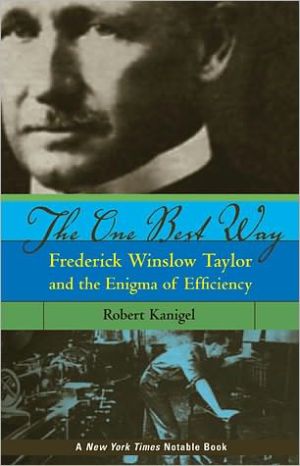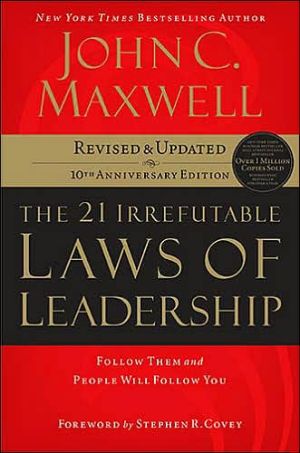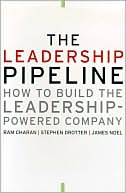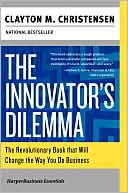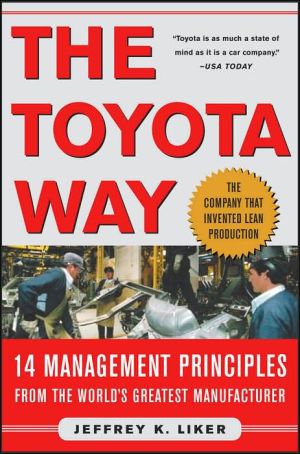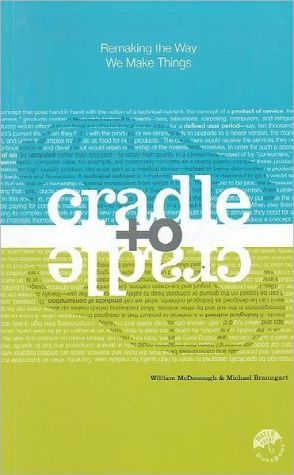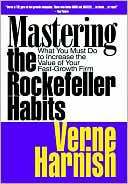The One Best Way: Frederick Winslow Taylor and the Enigma of Efficiency
Frederick Winslow Taylor (1856-1915) was the first efficiency expert, the original time-and-motion man — the father of scientific management, the inventor of a system that became known, inevitably enough, as Taylorism. "In the past the man has been first. In the future the System will be first," he predicted boldly, and accurately. Taylor bequeathed to us, writes Robert Kanigel in this definitive biography, a clockwork world of tasks timed to the hundredth of a minute.\ Taylor helped instill...
Search in google:
The definitive biography of the first "efficiency expert." Publishers Weekly Who has "probably had a greater effect on the private and public lives of the men and women of the 20th century than any other single individual?" Few people nowadays would answer, "Frederick Winslow Taylor" (1856-1915), the first "efficiency expert." But Kanigel (The Man Who Knew Infinity) thinks that this claim may not be an overstatement. Taylor, who came from a wealthy Philadelphia family, turned down Harvard and went to work in a foundry, then as an apprentice in a steel mill's machine shop, where he became a foreman by the time he was 24 (and won the U.S. Open doubles tennis championship the next year). Taylor later came to romanticize his years as a mill worker and referred to them often when charged with being antilabor, but it was as a "gang boss" that, armed with his ever-present stopwatch, he began what he considered his scientific "time and motion" studies of how long a worker took to do each step of a specific joband how long the best workers should take. He also managed to earn a degree in engineering from the Stevens Institute and went on to increase the efficiency of machines (as well as men). In the late 1890s, Taylor became a private consulting engineer, spreading his gospel of efficiency and eventually making a nameand his fortunein high-speed steel manufacture. The so-called Taylor System became internationally known, and in 1912 he even had to defend it before a congressional committee formed to determine whether working people should be subjected to the rule of a clock. Kanigel's admiration for his subject is tempered with realistic skepticism. A most satisfying examination of a singular American life. (May)
\ From the Publisher"An expansive and illuminating biography of both the man and the gritty industrial world he inhabited." The New York Times\ \ \ \ \ Publishers Weekly\ - Publisher's Weekly\ Who has "probably had a greater effect on the private and public lives of the men and women of the 20th century than any other single individual?" Few people nowadays would answer, "Frederick Winslow Taylor" (1856-1915), the first "efficiency expert." But Kanigel (The Man Who Knew Infinity) thinks that this claim may not be an overstatement. Taylor, who came from a wealthy Philadelphia family, turned down Harvard and went to work in a foundry, then as an apprentice in a steel mill's machine shop, where he became a foreman by the time he was 24 (and won the U.S. Open doubles tennis championship the next year). Taylor later came to romanticize his years as a mill worker and referred to them often when charged with being antilabor, but it was as a "gang boss" that, armed with his ever-present stopwatch, he began what he considered his scientific "time and motion" studies of how long a worker took to do each step of a specific joband how long the best workers should take. He also managed to earn a degree in engineering from the Stevens Institute and went on to increase the efficiency of machines (as well as men). In the late 1890s, Taylor became a private consulting engineer, spreading his gospel of efficiency and eventually making a nameand his fortunein high-speed steel manufacture. The so-called Taylor System became internationally known, and in 1912 he even had to defend it before a congressional committee formed to determine whether working people should be subjected to the rule of a clock. Kanigel's admiration for his subject is tempered with realistic skepticism. A most satisfying examination of a singular American life. (May)\ \ \ Library JournalIn 1995, the Safelite Glass Corporation moved from hourly to piece-rate pay for its workers and realized a productivity increase of 20 percent per worker. After over 100 years, the work of Frederick Winslow Taylor, a management expert who emphasized such an approach to paying workers, still permeates the American work force. Kanigel (Apprentice to Genius, Johns Hopkins Univ., 1993) brings his winning writing style to this treatment of the enigmatic Tayloroften called the "father of scientific management"whom Peter Drucker has said warrants a place alongside Darwin and Freud in the making of the modern world. Kanigel deftly shies away from a psychologically interpretive approach, drawing the reader right into the heart of life in late-19th-century America, the age of steam and steel (Taylor died in 1915). This rewarding and beautifully written work is a shoo-in as a best business book and will likely stand as the definitive work on Taylor. Essential.Dale F. Farris, Groves, Tex.\ \ \ \ \ Kirkus ReviewsA circumspect biography of America's first efficiency expert, sensitive to both Taylor's limitations and his impact on the world.\ Even given the wholehearted, if naive, belief in science in the early 20th century, Frederick Winslow Taylor stood out in his devotion to the god of efficiency. Efforts to rationalize and speed up production were dubbed "Taylorism" because his claims were bolder, his conceptions more rigid, and his self-promotions more concerted than those of his contemporaries. He advocated piece-rate pay scales, determined through time studies establishing how long a job should take, with the details of each task prescribed by management to remove any exercise of judgment by workers. To explain the mind that envisioned this system, science writer Kanigel (The Man Who Knew Infinity, 1991) emphasizes the combination of privileged personal circumstances and ordinary mental capacities that made Taylor both a product of his environment and completely un-self-conscious of this fact. Far from a revolutionary or even creative thinker, Taylor remained firmly ensconced in the mainstream of his own wealthy, educated social class, never considering the possibility that his view of "the lower sort" could be a function of snobbery or ignorance. At a time when industrial expansion depended on increasing productivity and progressives in all areas promoted efficiency and expertise, Taylor became the guru of workplace reorganization. Kanigel is fair: He recognizes that Taylor understood his system as a utopia in which employers obtained higher production and employees higher pay. However, the attendant loss of human dignity and worker creativity was a steep price to pay, even if it was a function of narrow-mindedness rather than perniciousness.\ Kanigel's lively prose and sense of irony make this biography an enjoyable read.\ \ \
